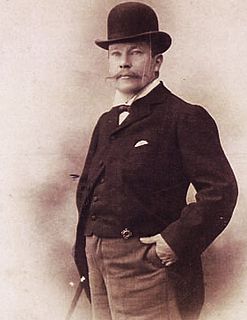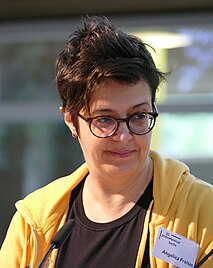Related Research Articles

Porto Alegre is the capital and largest city of the Brazilian state of Rio Grande do Sul. Its population of 1,488,252 inhabitants (2020) makes it the twelfth most populous city in the country and the center of Brazil's fifth largest metropolitan area, with 4,405,760 inhabitants (2010). The city is the southernmost capital city of a Brazilian state.

Rio Grande do Sul is a state in the southern region of Brazil. It is the fifth-most-populous state and the ninth largest by area. Located in the southernmost part of the country, Rio Grande do Sul is bordered clockwise by Santa Catarina to the north and northeast, the Atlantic Ocean to the east, the Uruguayan departments of Rocha, Treinta y Tres, Cerro Largo, Rivera and Artigas to the south and southwest, and the Argentine provinces of Corrientes and Misiones to the west and northwest. The capital and largest city is Porto Alegre. The state has the highest life expectancy in Brazil, and the crime rate is relatively low compared to the Brazilian national average. Despite the high standard of living, unemployment is still high in the state, as of 2017. The state has 5.4% of the Brazilian population and it is responsible for 6.6% of the Brazilian GDP.

Santa Maria is a municipality (município) in the central region of Rio Grande do Sul, the southernmost state of Brazil. In 2020, its population was 283,677 inhabitants in a total area of 1,823 square kilometres (704 sq mi). Santa Maria is the 5th biggest municipality in the state, and the largest in its micro-region.

Mário de Miranda Quintana was a Brazilian writer and translator.

Guaíba is a city located in the Metropolitan Porto Alegre of Porto Alegre, in the Brazilian state of Rio Grande do Sul. The city is on the shores of the Guaíba Lake.

Augusto Pestana was a Brazilian engineer and politician. Born in Rio de Janeiro, Pestana moved in the late 1880s to Rio Grande do Sul, Brazil's southernmost state, where he would become a specialist in railroad engineering and public administration, as well as one of the main leaders of the Republican Party of Rio Grande do Sul (PRR).

Viamão is a city in Rio Grande do Sul, Brazil. In size it is the largest municipality in the metropolitan region of Porto Alegre and the seventh most populous in the state.

Jayme Guilherme Caetano Braun was a Brazilian folk musician, poet and composer.

Pedro Weingärtner was an important Academic painter of Brazil, and the first artist born in Rio Grande do Sul to win international praise for his work.

Luis Carlos Verzoni Nejar, better known as Carlos Nejar, is a Brazilian poet, author, translator and critic, and a member of the Academia Brasileira de Letras. One of the most important poets of its generation, Nejar, also called "o poeta do pampa brasileiro", is distinguished for his use of an extensive vocabulary, alliteration, and pandeism. His first book, Sélesis, was published in 1960.

Manuel Marques de Sousa, Count of Porto Alegre, nicknamed "the Gloved Centaur", was an army officer, politician and abolitionist of the Empire of Brazil. Born into a wealthy family of military background, Manuel Marques de Sousa joined the Portuguese Army in Brazil in 1817 when he was little more than a child. His military initiation occurred in the conquest of the Banda Oriental, which was annexed and became the southernmost Brazilian province of Cisplatina in 1821. For most of the 1820s, he was embroiled in the Brazilian effort to keep Cisplatina as part of its territory: first during the struggle for Brazilian independence and then in the Cisplatine War. It would ultimately prove a futile attempt, as Cisplatina successfully separated from Brazil to become the independent nation of Uruguay in 1828.
SAVAG – Sociedade Anônima Viação Aérea Gaúcha was a Brazilian airline founded in 1946 that operated mainly in the state of Rio Grande do Sul. It was absorbed by Cruzeiro do Sul in 1966.
Ronald Augusto da Costa is an experimental and visual poet, initially linked to the poesia marginal, poetry critic, editor, musician and songwriter of southern Brazil, with an associated editor to the website of the Sibyl, created by the poet Charles Bernstein and Régis Bonvicino, besides being renowned for his studies of world black literature.

Francisco de Paula Brochado da Rocha was a Brazilian counsel, professor and politician.

Events in the year 1898 in Brazil.

Aldyr Garcia Schlee was a Brazilian writer, journalist, translator, illustrator and professor.

Amália dos Passos Figueiroa was a Brazilian poet and journalist.

Angélica Freitas is a Brazilian poet and translator.

João Neves da Fontoura was a Brazilian lawyer, diplomat and politician. He was born in Cachoeira on November 16, 1887, and died in Rio de Janeiro on March 31, 1963.
References
- ↑ Brazil: Amateur Radio History - First Operators. Radioamador.com. Page viewed on 12.11.2011.
- ↑ Schüler, Donaldo. Poesia Modernista no RGS, Porto Alegre, Ed. Movimento, 1982.
- ↑ Tyrteu Rocha Vianna. Saco de Viagem 1st ed. 1928 (Traveling-bag, 1928). Organization of the 2nd ed. / Critical study and notes by Marcon, Italico. Published 1993 by the State Institute of the Book, EDIPUCRS in Porto Alegre, Brazil. Written in Portuguese.